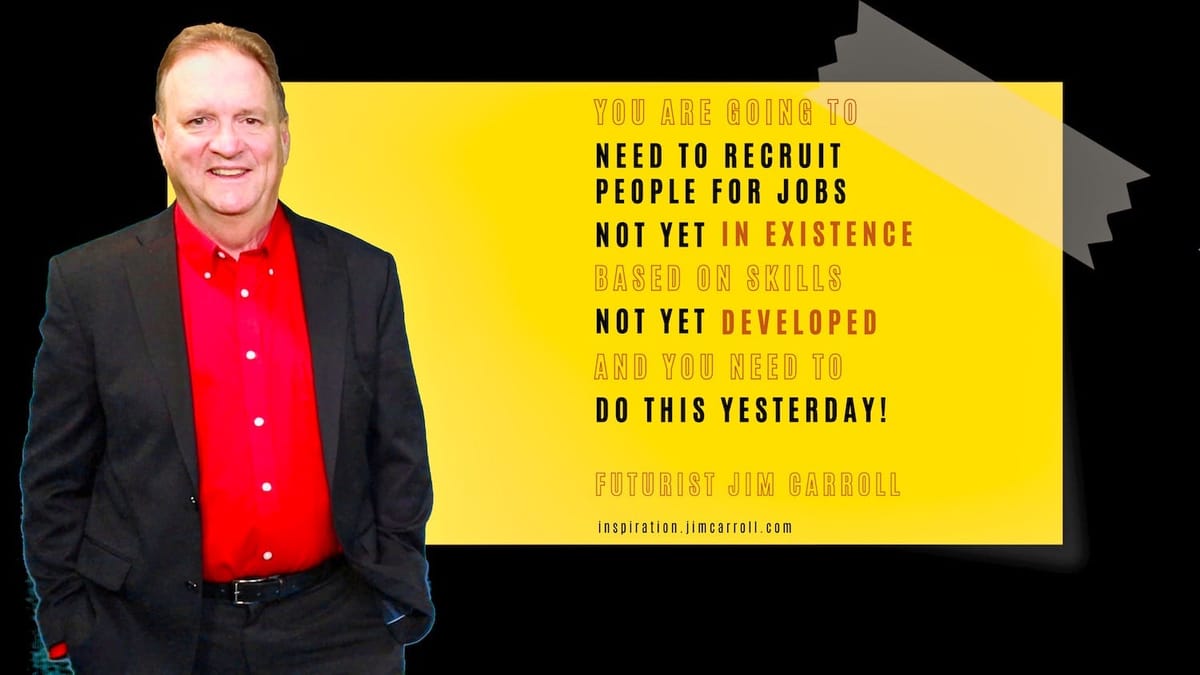The Great Resignation is not just about people tuning out of the workforce because of their desire for more life in their work balance - it's also all about the acceleration of new skills, knowledge, and careers - and the emergence of a very transactional type of workforce relationship.
This trend is not new - it goes back a long, long time!
Way back in 1987, I was immersed in many of the early networking technologies which would one day form the Internet. I was convinced that we were at the edge of a transformative time and that the emerging global network would have a profound impact on our world -- politics, the structure of organizations, and jobs. I remember being stunned when I read an editorial in the New York Times that October. The article essentially predicted a future in which organizations would become smaller, grow and contract as needs arise, and become something fundamentally different. That one article forever shaped my view of the future and has formed the basis of much of what I focus upon today in terms of the transformative trends that surround us.
Fast forward to today's economy. Organizations are going to go forward with a smaller employee footprint. They're expanding and contracting as necessary. It's all about contract work, part-time relationships, and external partnerships. This is not a new trend; indeed, back in the mid-90s, I wrote a variety of articles and chapters in various of my books that touched on this theme in a variety of ways. For now, this editorial from 1987 makes for a great read.
"Tomorrow's Company Won't Have Walls", New York Times, October 1987
The hub of the network organization will be small, centralized and
local. At the same time, it will be connected to an extended network
that is big, decentralized and global. People from the network and
from outside the company will join the group at the hub for periods
of time and then leave it.
But the network organization will also present its own set of
paradoxes. For instance, how will these new organizations be able to
manage the often conflicting interests of the centralized hub and the
decentralized network? And how can a system that is both centralized
and decentralized be unified and coordinated and quick to respond to
changes in the market place?
For the global organization of the future, the ability to acquire new
products, services, technologies and capital will not be the problem.
The marketplace is crowded with each of these as never before.
But for exactly this reason, the challenge for each company will be
to nurture its own unique culture and develop the quality of its
human resources. That is because competitive advantage will rest
increasingly in the way each network organization gathers and
assesses information, makes its decisions and then carries out those
decisions.
The 21st-century will be full of organizational surprises. The
challenge of arranging cooperative efforts between companies to
achieve strategic gains is beginning to emerge. Changes in the
marketplace have given companies from around the world the
opportunity to develop these new linkages. Advances in
telecommunications technology also enable companies to bring people
together for competitive advantage. The time has now come to form
new global collections of companies, and to fully utilize human
relationships.
Today? We're in the midst of exactly what was predicted.

